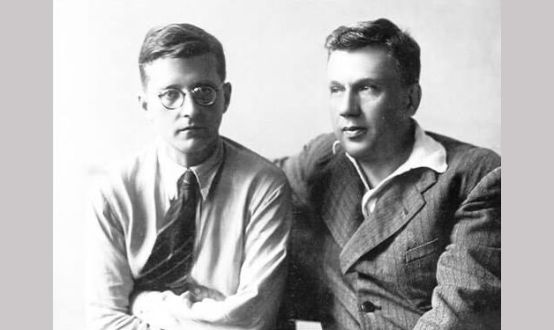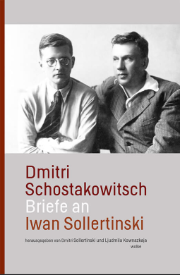Testimonies from icy times
From 1931 until his death in 1944, Dmitri Shostakovich wrote letters to his best friend Ivan Sollertinsky. They are very revealing, even if some things were not allowed to be discussed.

As early as spring 1934, Shostakovich wrote to his best friend, the writer and musicologist Ivan Sollertinsky, about negative reactions to the second opera Lady Macbeth of Mtsensktwo years later in the Pravda was denounced and removed from the repertoire in Moscow and Leningrad. "Your formalistic remarks are duly countered. All in all, numerous rebuffs are issued. Oh, that's good. I like it. It reduces the fat layer." (Letter dated July 9, 1934). This was at a time when the 28-year-old composer still believed himself to be untroubled by Stalin's censorship.
He was later shocked by the abrupt change from admired young composer to "enemy of the people" when, on January 28, 1936, the article Chaos instead of music in the Pravda appeared. Two days later, he asked from Arkhangelsk, where this total betrayal came to his attention, for caution: "Don't do anything before my return. Come on the fifth." Then not another word, until he told his friend a month later: "I'm leading a quiet life here in Moscow. I'm at home and don't go out. Waiting for a call. I have little hope of being received." In the notes it says: "DSCH [Dmitri Shostakovich] wrote to Stalin and asked for an audience in connection with the situation that had arisen after the article appeared Chaos instead of music."
Precise notes take up an entire third of the book. They are rightly referred to as "commentaries" and are indispensable for understanding the cryptic brevity of Shostakovich's statements due to censorship. Thanks to the letters to Isaac Glikman published in 1995, it was possible to become acquainted with such circumstances as early as the second formalism debate in 1948. However, no new insights were to be expected from the time of the first condemnation, because in this dangerous situation it was completely impossible for Shostakovich to communicate anything of substance. Maxim, the son, pointed out that his father had burned many letters from the 1930s for fear that they might incriminate the senders. Fortunately, his letters to Sollertinski have been preserved. It is extremely revealing to learn about the circumstances of Shostakovich's life from 1931 to 1944, the year of Sollertinski's death. They form the prehistory, so to speak, to the Glikman letters, which extend from 1941 to Shostakovich's death in 1975.
Dmitri Shostakovich: Letters to Ivan Sollertinsky, edited by Dmitri Sollertinsky and Lyudmila Kovnatskaya, translated from the Russian by Ursula Keller, 251 p., € 36.00, Wolke, Hofheim 2021, ISBN 978-3-95593-097-4








